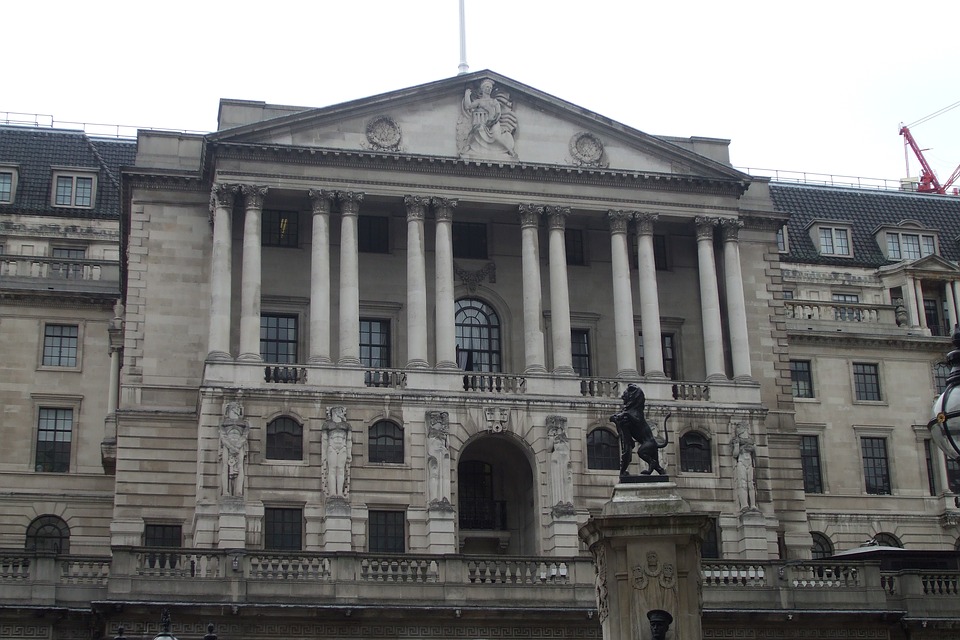Is the Bank of England’s independence up for challenge? Or do political parties need to respond better to the way it exercises that independence? When Mark Carney opened the conference in September marking 20 years of independence for the Bank of England, he lobbed a joke at the former graduate trainee of the Bank sitting in the front row. “Imagine what could have become of your career, prime minister, if you had stayed at the Bank,” its governor said, before Theresa May rose to give the keynote speech.
Maybe the joke is on him, though. Despite the case he made for independence – an innovation in the architecture of modern government that has a lot to be said for it – he stepped too smoothly around the shortcomings. Its programme of very low interest rates, or quantitative easing (QE), in response to the 2008 crisis was part of one of the biggest economic experiments that developed countries have performed on themselves and the world economy. It arguably softened the blow of the crisis.
But it fuelled a decade’s rise in asset prices, including property prices, and with that a divergence in wealth between the richest and the poorest, and in turn a difficulty for many of buying (or even renting) a home.
Did officials foresee the consequences? Probably not. But politicians in all parties are now grappling with the best response to the fury of those who cannot afford a home. That prompts questions in turn about whether decisions that have so much impact should be taken by unelected officials.
Twenty years ago in September, Gordon Brown, then chancellor, urged on by his adviser Ed Balls, gave the Bank the power to set interest rates and generally to run monetary policy, previously shared with the Treasury. It was given the remit to pursue a target rate of inflation, and after that, to pursue the government’s intended level of economic growth.
Carney is clear – and comparatively uncontroversial – about the successes that followed. “Long and varied experience has shown that price stability is the best contribution monetary policy can make to the public good”, he said. “High inflation hurts the least well off in society the most… Equally, deflation imperils growth and employment and, in the extreme, leads to financial ruin and economic collapse.”
Prices rose by 750% in the 25 years to 1992, he said, more than over the previous 250 years. In that period, unemployment was high and growth volatile; when politicians control monetary policy, he noted, they might promise low inflation but then go for faster growth “and ultimately achieve neither”.
He is right that the gains from independence are real. In the past 20 years, inflation averaged just under 2% a year against more than 6% in the preceding two decades. The main charge levelled at the Bank – the failure to anticipate the financial crisis and to regulate institutions in that light – has been addressed by the regulatory changes since 2008.
But he treats too lightly the “host of issues” – including housing affordability – “laid at the Bank’s door”.
Yes, the Bank cannot do everything; yes, its objectives are carefully defined in the remit. Yes, too, it is ultimately accountable to “Parliament and the people”. But that is to ignore the scale of the change in the distribution of wealth brought about by QE and the political repercussions that continue. The Labour opposition has not explicitly challenged the Bank’s independence. But it has made the affordability of housing a priority. What’s more, given its desire to control the price of rail tickets and water bills through its proposed renationalisation, it would not be surprising if it wanted to control the price of loans, too.
Reversing the Bank’s independence would jeopardise the successes that have followed. But politicians need to consider whether its remit is still the right one. They need, too, to be more alert to the wider consequences of its independent decisions – and be quicker to change planning laws to make it possible for more people to afford houses, if that is what they conclude the country wants.
Source: Economia

